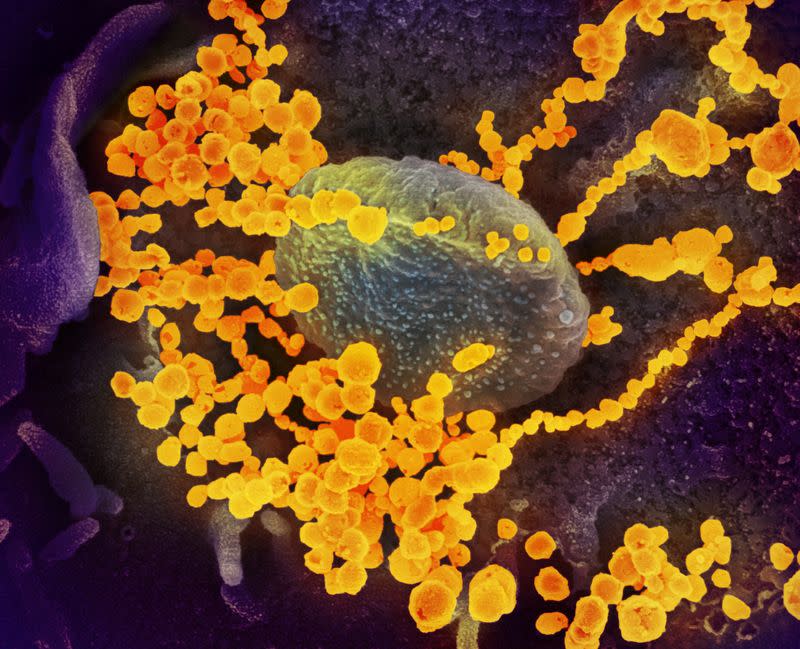You are here
 NIH launches trial of Rigel drug for severe COVID-19 The tablets, sold under the brand name Tavalisse by Rigel Pharmaceuticals Inc, have shown in lab and animal studies the ability to block production of sticky, web-like substances that the immune system produces to trap foreign invaders. For reasons that are still not clearly understood, the immune systems YahooNews
NIH launches trial of Rigel drug for severe COVID-19 The tablets, sold under the brand name Tavalisse by Rigel Pharmaceuticals Inc, have shown in lab and animal studies the ability to block production of sticky, web-like substances that the immune system produces to trap foreign invaders. For reasons that are still not clearly understood, the immune systems YahooNews (Reuters) - The U.S. National Institutes of Health on Thursday launched a clinical trial of fostamatinib, currently used to treat a blood platelet-destroying autoimmune disorder, in patients hospitalized with severe COVID-19, the disease caused by the novel coronavirus.
The tablets, sold under the brand name Tavalisse by Rigel Pharmaceuticals Inc, have shown in lab and animal studies the ability to block production of sticky, web-like substances that the immune system produces to trap foreign invaders.
For reasons that are still not clearly understood, the immune systems of some COVID-19 patients can overreact, creating an inflammatory cascade that can be toxic to organs, cause blood clots and worsen pneumonia.
Fostamatinib is designed to block activity of an enzyme that regulates parts of the body's immune response, including "neutrophil extracellular traps," or NETs, that white blood cells release to ensnare and kill pathogens.
"I am most excited about this drug because I know that as a targeted therapy it inhibits NETs, which we think is a big contributor to mortality," said Dr. Richard Childs, clinical director of the National Heart, Lung, and Blood Institute.
The randomized, placebo-controlled Phase 2 trial will enroll 60 patients at the NIH Clinical Center in Bethesda, Maryland, Inova Health System's Northern Virginia hospital and possibly other Inova locations. ...



Recent Comments